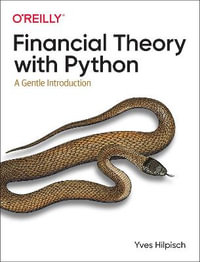This is the first definitive introduction to behavioral economics aimed at advanced undergraduate and postgraduate students. Authoritative, cutting edge, yet accessible, it guides the reader through theory and evidence, providing engaging and relevant applications throughout. It is divided into nine parts and 24 chapters:
Part I is on behavioral economics of risk, uncertainty, and ambiguity. The evidence against expected utility theory is examined, and the behavioral response is outlined; the best empirically supported theory is prospect theory.
Part II considers other-regarding preferences. The evidence from experimental games on human sociality is given, followed by models and applications of inequity aversion, intentions based reciprocity, conditional cooperation, human virtues, and social identity.
Part III is on time discounting. It considers the evidence against the exponential discounted utility model and describes several behavioral models such as hyperbolic discounting, attribute based models and the reference time theory.
Part IV describes the evidence on classical game theory and considers several models of behavioral game theory, including level-k and cognitive hierarchy models, quantal response equilibrium, and psychological game theory.
Part V considers behavioral models of learning that include evolutionary game theory, classical models of learning, experience weighted attraction model, learning direction theory, and stochastic social dynamics.
Part VI studies the role of emotions; among other topics it considers projection bias, temptation preferences, happiness economics, and interaction between emotions and cognition.
Part VII considers bounded rationality. The three main topics considered are judgment heuristics and biases, mental accounting, and behavioral finance.
Part VIII considers behavioral welfare economics; the main topics are soft paternalism, and choice-based measures of welfare. Finally, Part IX gives an abbreviated taster course in neuroeconomics.
Industry Reviews
"The publication of this book is a landmark occasion for the field of behavioural economics. Until now there has been no comprehensive survey of the field suitable for graduate students. Professor Dhami has thoroughly and rigorously filled that gap. The book will be placed in a handy place in my office since I plan to consult it regularly." -- Richard H. Thaler, University of Chicago"The Foundations of Behavioral Economic Analysis offers a fascinating mix of theory and evidence and is the most comprehensive synthesis of behavioral economics at an advanced level. It will be very useful for advanced researchers as well as for graduate students in behavioral economics and beyond." -- Ernst Fehr, University of Zurich"This book is a tour de force, a literal encyclopedia of behavioral economics. Its extraordinary breadth and depth, spanning all aspects from psychological foundations to the most recent advances and seamlessly integrating theory with experiments, will make it the must-have reference for anyone interested in this field, and more generally in where economics is headed. It will quickly become the standard textbook for all graduate courses in behavioral economics, and a much-thumbed companion for all researchers working at the frontier." -- Roland Benabou, Princeton University"For someone like myself, who started by being ignorant of the richness of the conversation within behavioral economics on a variety of issues, this magisterial volume is the ideal introduction, at once lucid and sophisticated." -- Abhijit Banerjee, Massachusetts Institute of Technology"In Foundations of Behavioral Economic Analysis, Sanjit Dhami offers the first summary and exposition of research in this rapidly growing and increasingly influential subfield. The coverage is comprehensive, extending even to the recent subtopics of behavioural welfare economics and neuroeconomics. The book is distinguished by its detailed yet readable coverage of theory and evidence and its balanced discussion of the philosophical and methodological differences and similarities between behavioural and neoclassical approaches to microeconomics. Select undergraduates, graduate students, and interested scholars will all gain from this masterful book." -- Vincent P. Crawford, University of Oxford and University of California, San Diego"Economic theory in the twentieth century developed an extremely powerful repertoire of analytical techniques for studying human behavior, but labored under the rather bizarre misconception that the postulates of rational choice were sufficient to characterize economic behavior. Behavioral economics from the late twentieth century to the present demonstrated the explanatory power of hitching these analytical techniques to empirical data gleaned from laboratory and field experiments. The result has radically transformed economics as a scientific discipline, and the best is surely yet to come. Sanjit Dhami has performed a monumental task in consolidating this research and explaining the results in a rigorous yet accessible manner, while highlighting major controversies and sketching the central research questions facing us today." -- Herbert Gintis, Santa Fe Institute"In the development of any field there comes a moment where the results already established must be synthesized, explained and consolidated both for those in the field and those outside. In this amazing volume Sanjit Dhami has done just that and far more. This book will serve as an encyclopedic must-have reference for anyone seeking to do work in this field or just curious about it. The coverage is exhaustive and the exposition extremely clear and at a level suitable for advanced undergraduates, graduates students and professionals. This is truly an achievement." -- Andrew Schotter, New York University and Center for Experimental Social Science"Displaying wit and wisdom, in Foundations of Behavioral Economic Analysis Professor Dhami conveys both the substance and the excitement of the burgeoning field of behavioral economics. This remarkable volume will serve as a reference for practitioners and a compelling entry-point for the curious." -- George Loewenstein, Carnegie Mellon University"The expansion of behavioral economics during the past twenty years has been remarkable, much of it concerning strategic interaction and using tools from game theory. Sanjit Dhami's amazing book summarizes - and even defines - the field, broadly as well as in depth. His coverage of theory as well as of experiments is superb. Foundations of Behavioral Economic Analysis will be an indispensable resource for students and scholars who wish to understand where the action is." -- Martin Dufwenberg, University of Arizona"Sanjit Dhami's Foundations of Behavioral Economic Analysis is a major and most impressive achievement. It provides an exhaustive account and a masterful synthesis of the state of the art after more than three decades of behavioral economics. For many years to come it will be an indispensable reference for researchers in economics and psychology, and it is bound to become the standard text in graduate and advanced undergraduate courses on behavioural and experimental economics." -- Klaus M. Schmidt, University of Munich"This is the most complete and stimulating book on behavioral economics. With elegance and unprecedented elaborateness, it ties together a wealth of experimental findings, rigorous theoretical insights and exciting applications across all relevant fields of behavioral research. Sanjit Dhami's work has been shaped by numerous comments from the leaders in the field. Now, in the years to come, it will be the standard that shapes how the next generation of students and researchers think about behavior and its science." -- Axel Ockenfels, University of Cologne, Speaker of the Cologne Excellence Center of Social and Economic Behavior"This book covers all relevant theoretical aspects of behavioral economics in great depth. A great strength is its comprehensiveness: it covers the whole field. The book thus is unique in bringing to the fore the unity and diversity of the behavioral approach. The material is well-organized and accessible to a wide audience. It is invaluable to anyone teaching or studying any topic in behavioral economics, showing how the topic fits into the whole." -- Peter Wakker, Erasmus University Rotterdam"Foundations of Behavioral Economic Analysis will be a central textbook for behavioral economics. One key feature is its appealing focus on the interplay between theory and evidence. For researchers, it will be a great source of information, puzzles, and challenges for the many years to come. It is a major achievement." -- Xavier Gabaix, New York University, Stern School
























